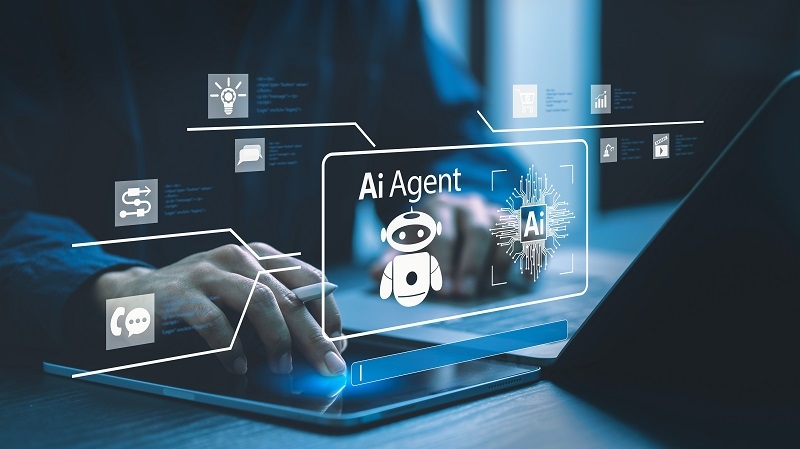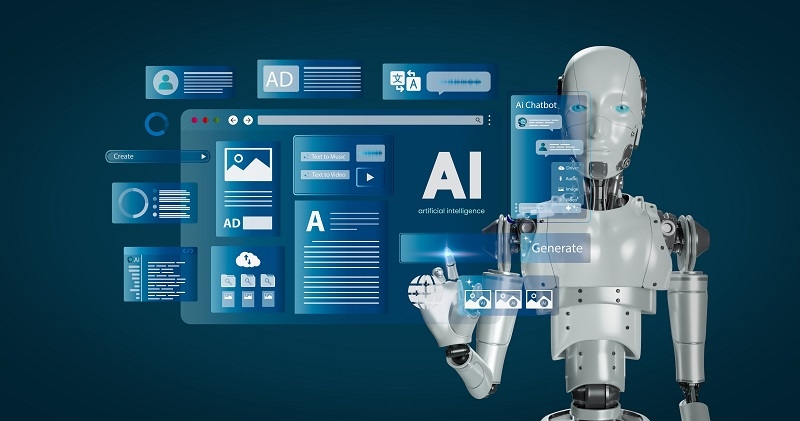
AI (artificial intelligence) is now a common element in our everyday experiences, from virtual assistants on our phones to smart tools that enhance the way companies operate. The idea of AI agents is one of the most essential concepts in AI. The question many folks ask is, what is agentic AI, or what does an AI agent do? These concepts are the key to appreciating the way AI is changing the world. This is an easy-to-understand guide that will describe AI agents. We will discuss what they are, their functionality, their categories, and their comparison against general tools such as chatbots.
It is always good to figure out what AI agents are before delving into the depths of the matter. To put it in plain terms, an AI agent is a system capable of perceiving its surroundings, making decisions, and taking action to accomplish certain objectives. These are agents that are supposed to be problem-solvers.
Speaking about AI agents, consider them as online assistants that accept information, process and take actions. To illustrate, when you tell Siri to play some music, it hears you, interprets what you are asking it to do, and performs it by turning on the song. That is the way an AI agent functions.
What does an AI agent do, then? Its primary task is to receive input, make a decision, and give output. An AI agent may suggest products, command a robot, respond to questions, or even process a huge amount of data. The role is relative to its programming and intended accomplishment.
Since everyone is talking about new technologies, you may come across the term agentic AI. This may seem confusing, but it is very simple when decomposed.
If you are asking what agentic AI is, the answer is that it refers to AI systems that act with more autonomy. These agents do not just respond to commands but can plan, learn, and take initiative. Think of it like the difference between someone who only answers questions versus someone who solves problems on their own without being asked.
One common question is about agentic AI vs chatbot. A chatbot is usually limited to answering questions based on scripts or stored knowledge. Agentic AI, on the other hand, can adapt, make new decisions, and go beyond simple responses. While chatbots are helpful for customer support, agentic AI can manage complex tasks like scheduling, analyzing data, or creating content.
AI agents come in different forms, and each type is built to handle specific tasks. To really understand their role, it helps to explore the categories.
People often ask, How many types of agents are there in AI. While the exact number may vary depending on how they are classified, the most common categories are five. These include simple reflex agents, model-based agents, goal-based agents, utility-based agents, and learning agents. Each plays a different role.
These are the most basic types. They act only on the current situation without considering the past. For example, a thermostat that turns on the heat when it senses the room is cold is like a simple reflex agent.
These agents are more advanced because they remember past information. For example, a robot vacuum cleaner that maps out your home to clean more effectively uses a model of its environment.
These agents act with a goal in mind. They do not just react but try to achieve something specific. For example, GPS navigation systems work toward the goal of giving you the fastest route to your destination.
Utility-based agents go one step further by choosing the most beneficial action. They do not just aim for any solution but for the best solution. For example, an AI system in healthcare might recommend treatments that balance effectiveness with fewer side effects.
Learning agents are the most advanced. They improve over time by learning from experiences. For example, email spam filters get better the more you mark messages as spam.
Also read: ChatGPT AI Capabilities Are Reshaping the Power & Risk Game

Now that we know the types, it is easier to see where they appear in daily life. AI agents are already all around us, often without us realizing it.
Tools like Alexa, Google Assistant, and Siri are prime examples. They take your voice commands, process them, and give back useful responses.
Smart home devices, lighting systems, and security cameras all use AI agents. They sense changes in the environment and act automatically to create comfort and safety.
AI representatives are used in hospitals and clinics to help physicians analyze reports, propose a diagnosis, and even anticipate potential health hazards.
AI agents do not represent a mythical future that is out there. They are defining the way people spend their daily lives, work, and shop.
AI agents make the routine easier by reminding you of some things and even assisting with shopping suggestions.
To enhance efficiency and reduce costs, companies use AI agents to improve customer experience. They can cope with monotony in the workplace to allow human employees to work on larger objectives.
AI agents are on the edges in areas such as medicine, education, and science. They are useful in examining large volumes of data and also in proposing solutions that people might overlook.
AI agents will always get more sophisticated and become more deeply integrated with our lives as technology continues to accelerate in the future.
The next generation of AI agents will be even more autonomous. They will not respond to commands but expect needs and perform even before we ask them.
Probably, we will have a world where AI agents will be working together with humans. Such collaboration will address such large-scale issues as climate change, healthcare disparities, and international education.
Chatbots may be helpful, but with the emergence of agentic AI, systems will be authorized to assume much more demanding roles, integrating creativity, problem-solving, and flexibility.
To a layperson posing the question of what AI agents explained or even to those who are new to the field of AI and want to know how many there are out there, the answer is that these systems are omnipresent, and they are multiplying rapidly. It may be transporting you to your job more quickly, securing your home, or helping medical professionals in hospitals, but AI agents are at the center of modern life. One should keep in mind the difference between agentic AI and a chatbot. Chatbots are useful, but agentic AI puts us into a place where machines can make autonomous decisions and benefit humans in more profound ways.
This content was created by AI